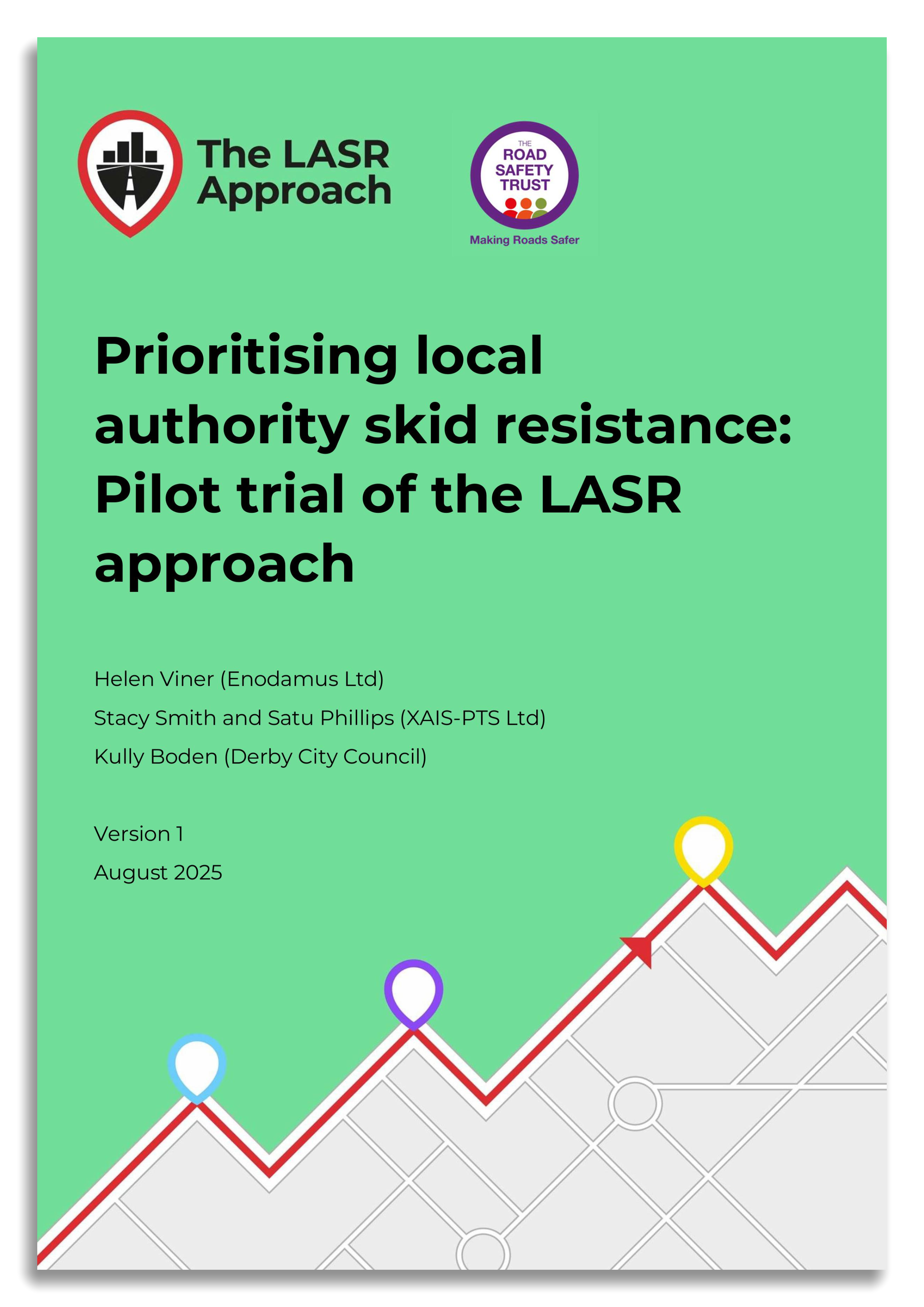
Your road to data-driven decisions
Many highway authorities routinely measure skid resistance on their key routes and carry out targeted improvements to reduce the risk of collisions. Typically, decisions about when and where to invest are guided by the research and approaches taken for national road networks. For local authorities, whose roads have different geometries, junction types, traffic speeds and traffic flow, the lack of evidence to support a risk-based approach posed a challenge for the effective management of their networks.
Now, under research funded by the Road Safety Trust, a prioritisation method has been developed to help local highway authorities identify the locations that will most benefit from treatment to improve skid resistance. The research has been carried out in collaboration with 19 local authorities and consisted of a desk study followed by a pilot implementation trial.
Project summary
See below for a summary of the research findings
The LASR approach
The prioritisation method, known as the LASR (local authority skid resistance) approach, combines information about the road characteristics, skid resistance, traffic and collision history to obtain a priority ranking for each location. The method uses the estimated benefit-to-cost ratio of treatment and the relative likelihood of collisions in wet conditions, based on evidence that was obtained from local roads during the desk study. It provides a practical and balanced approach to assessing risk, consistent with best practice in asset management.
The current version of the methodology is v3.0
An Excel template is available to help road authorities wanting to use the LASR v3.0 method to analyse their skid resistance data this autumn.
Any local authorities wishing to pilot or implement the method are invited to collaborate with the established local authority Steering Group. Please email enquiries@lasr-approach.org




























